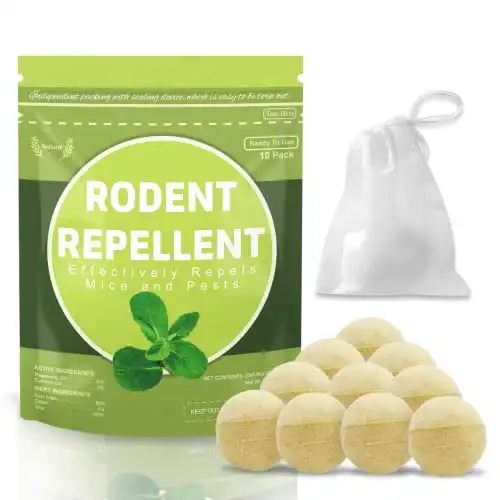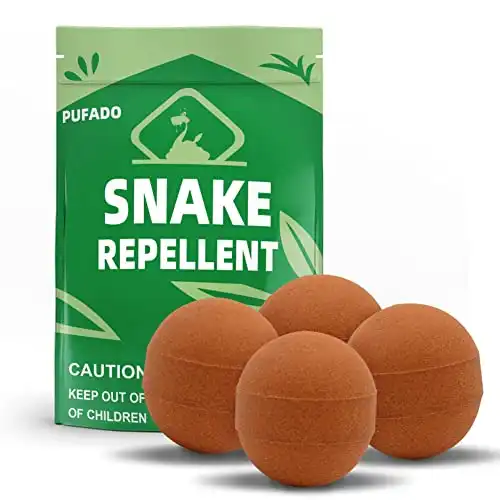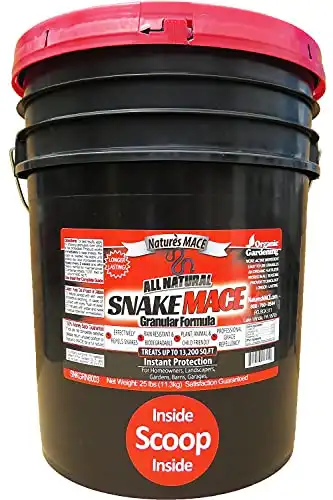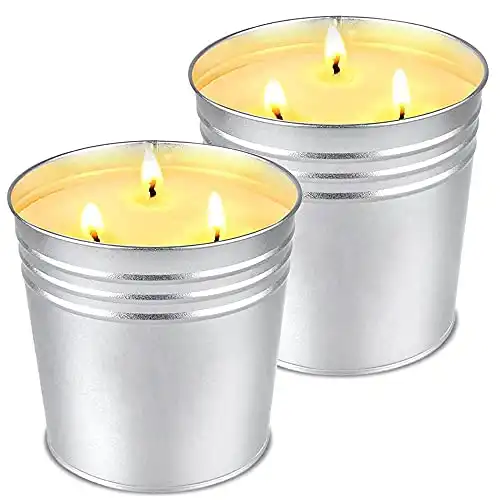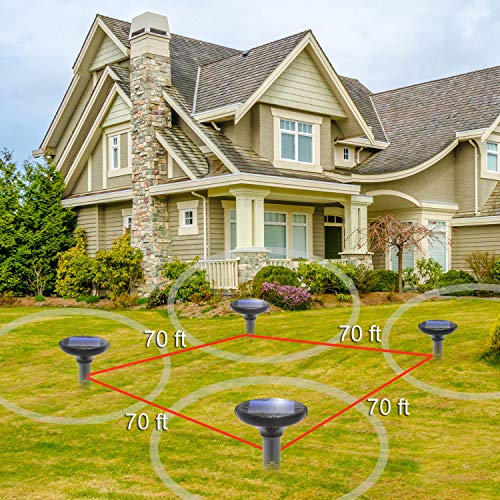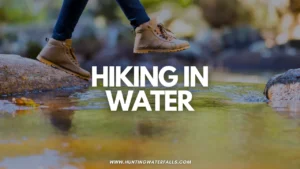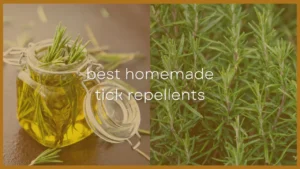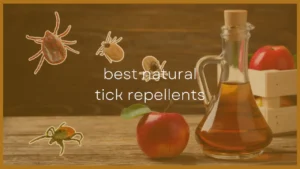Not all snake repellents are created equal and there are a lot out there that don't actually work to keep snakes away. However, there are also a variety of things that actually do get snakes out and help to keep them away.
By using one of the proven and effective methods below, you won’t waste your money and your property or campsite can be snake free.
Proven things that actually keep snakes away are physical barriers, commercial repellent products, essential oils, ammonia and vinegar. Keeping your grass short with no piles of vegetation and controlling rodents are also effective.
When selecting a good snake repellent, it’s good to understand why and how it works and use one that’s appropriate for your situation.
1. Physical Barriers
No snake repellent works perfectly and some snakes will still slither over even the most effective snake repellent powders. But physical barriers can provide an obstacle that is difficult or even impossible for even the most enthusiastic snake to cross over.
Snakes are pretty mobile and can easily move over a wide range of surfaces – except those that are too slippery as this doesn’t give them enough traction. This is why ropes on the ground do not keep snakes out like some people believe.
However, if a barrier is vertical, is made from a slippery-textured metal and has a lip or apron structure at the top, snakes won’t be able to cross it, and it will act as a solid physical barrier.
Snake fences are very effective at protecting your property from snakes but the wire should be closely woven with holes no larger than ¼ inch as this would allow baby snakes and small species through.
The fence should also go a few inches into the ground so that snakes can’t burrow underneath it.
If you live in a high snake population area, chances are there are a few companies that install snake fences that can quote you (I recommend getting at least 3 quotes so you don’t get taken for a ride).
If you already have fencing around your property and don’t want to change it, you could always modify it with add-on snake fencing, as the YouTube video below demonstrates:
If you’re looking for a physical obstacle for snakes when camping, or for just a small portion of your yard (eg. where you kids play equipment is) then consider a snake barrier.
Some of these you can put up within minutes and they fold up compactly for travel.
Here is how the portable one from Atrox works and it seems to be really effective.
It encourages snakes to continue along the outside of the fence, eventually moving away from it altogether and the overhanging top means it's extremely difficult for even the larger snakes to get over the fence even though it's quite low to the ground.
2. Short Grass With No Piles of Vegetation (Habitat Removal)
Snakes don’t like being exposed and prefer habitat with long grass and piles of vegetation or garbage where they can hide away.
You can make your garden unattractive to snakes by keeping your grass short, weeding often and getting rid of fallen leaves and dead vegetation.
The more inhospitable you make your yard to snakes the less likely they are to come into your yard and the more likely they are to leave quickly if they do enter your area.
Also making sure you patch holes and cut off access to areas in your house, garage, shed etc where they might hide out is also important. They are professionals who can inspect your house and help you to achieve this.
To keep snakes away when camping, choose a site in a clearing with no bushes or long vegetation. Also make sure to keep your tent zipped up at all times to keep snakes out of your tent so you don't find a scaly friend in your sleeping bag at night.
3. Controlling Rodents
Controlling rodents is an indirect way of keeping snakes away but is still highly effective.
Snakes hunt mice and rats for food and if your property doesn’t have them, they’ll be far less likely to enter it.
A safe way of controlling rodents is by using a non-toxic commercial repellent or peppermint essential oil.
Cadorabo Rodent Repellent from Amazon is definitely one to consider because it contains peppermint and cornmint oil and also helps repel moths, chipmunks, squirrels and spiders. Coincidentally peppermint oil also repels snakes so it’s a win-win.
Made with high-purity peppermint oil, effectively repels a multitude of different pests, such as mice, rats, squirrels, spiders, roaches, ants, flies, moths, and snakes too. Lasts for around 30-90 days and is made from natural ingredients making it safe for humans and pets.
4. Commercial Snake Repellents
There are countless commercial snake repellents on the market and it can be confusing with all the choice at places like Amazon.
However, if you want a snake repellent powder that actually works, look at the ingredients on the label, reviews and the toxicity as this should tell you if it’s effective.
A non-toxic snake repellent won’t harm any wildlife and vegetation and should contain substances with smells that snakes find overwhelming. These include essential oils and sulfur.
It's important to note that commercial snake repellents are not fool proof and some snakes will cross over them depending on a variety of factors.
Freshness of the repellent plays a role, species of snakes, weather and time of year as well as habitat and local food sources will all effect how well your snake repellent works.
You should paid snake repellents with habitat and rodent removal for better results and with a snake fence for the best results possible.
However, many people have found success with snake repellents and so they are well worth a try.
Pufado Snake Repellent Balls from Amazon is a great option and has many excellent reviews. You can move these balls around, take them with you when camping and they don’t make a mess in your yard.
Snake Repellents are able to repel copperheads, rattlesnake, cottonmoth and other breeds of snakes. They contain a scent that the snakes hate, providing barrier for your yard and home effectively.
The effect lasts for 2-3 months and is rain resistant and sun proof
5. Essential Oils
Looking for some natural ways to keep snakes away?
Certain essential oils actually have potent scents that tend to repel snakes quite effectively and a lot of commercial snake repellents use a combination of essential oils in their products to create a potent snake repellent.
These essential oils include:
- Peppermint
- Cloves
- Cinnamon
- Cedarwood
- Cornmint
- Citronella
With the exception of cedarwood oil (which should be used with cinnamon or cloves oil), you can use these oils alone or combined to repel snakes. Some people combine them to create a scent they love so their campsite or garden smells amazing.
You can also purchase commercial snake repellents that are made with essential oils. For example, Nature's MACE Snake Repellent from Amazon uses essential oils to keep snakes away and is sold in bulk making it perfect for use around your property.
Snake MACE formula is scientifically backed to have more active ingredients than any other snake repellents. It has the power and strength to completely repel snakes from your home, garden, yard, etc.
Features all natural ingredients, is safe to use and can provide year round protection no matter the season.
I like to decant some essential oils into a small plastic spray bottle for camping trips so I can spray the perimeter of my campsite.
Since the smell of essential oils dissipates after a few days or a rain shower, you’ll need to reapply it regularly.
6. Ammonia
Ammonia is one of the smells that snakes hate and avoid.
Unfortunately, ammonia is pretty toxic so you should apply it directly as it can harm the surrounding vegetation and wildlife.
The best way I've found to use it as a snake repellent is to soak something in it (like a paper towel or old rag) and place it in a sealed plastic bag. Then when you go camping open the plastic bag and place it around the perimeter of your camp site to deter snakes from entering.
If you have small kids or pets running around, this might not be the best method as they come into accidental contact with the ammonia.
7. Vinegar
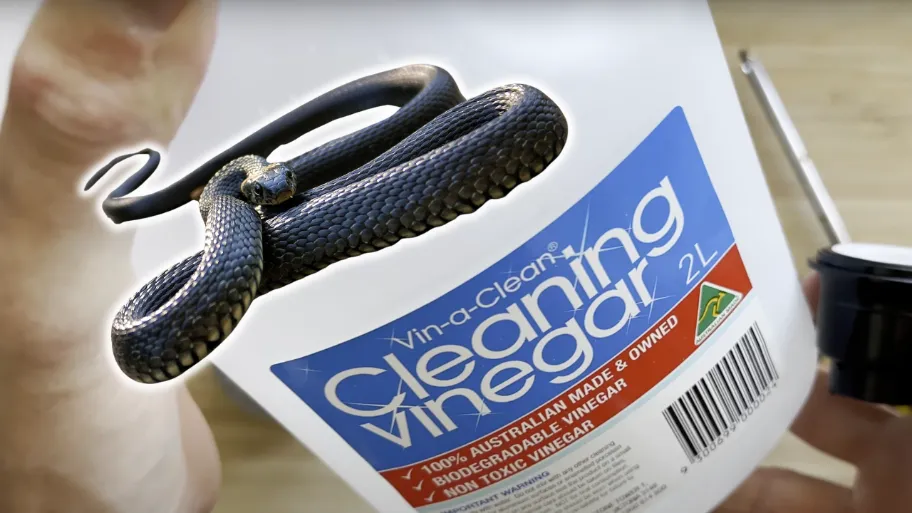
White vinegar is one of my favorite products because it has multiple purposes for camping and around the home, such as cleaning and insect repelling. It's also super cheap to buy and is a natural snake repellent.
Vinegar’s strong fumes deter snakes and you can apply it around your property or campsite using a spray bottle.
Vinegar is quite acidic though and can kill plants and turf so you do need to be careful where you spray it. It also only really works for about 24 hours before needing to be reapplied and also needs to be reapplied if it rains.
It's not the best long term solution, but can be a great short term solution when camping.
8. Plants That Snakes Don't Like
There are certain plants that emit smells that snakes don't tend to like and tend to shy away from.
These aren't fool proof snake repellents but combining these plants with all the advice mentioned above can help to keep your property snake free.
Some of the plants that snakes don't like include:
- Lemongrass
- Mother-In-Law’s Tongue
- Marigolds
- Basil
- Mugwort
- Alliums (or plants from the onion family, such as green onions)
If you want maximum effectiveness then you'll want to plant these around the entire perimeter of your property.
9. Citronella
Citronella oil has a citrusy scent that is pleasant to most humans but tends to repel snakes. It's derived from the lemongrass plant which we mentioned above.
It can also be effective at repelling flies and mosquitos as well as snakes which makes it a useful repellent when camping or hanging out in your backyard during summer.
You can use citronella in 2 ways:
- As an oil. Use it instead of lamp oil for your camping lantern or use it with an essential oil burner.
- As candles. To produce a strong enough scent, use candles that are large enough (like this one from Amazon that has 3 wicks and comes in a durable tin bucket).
100% soy wax citronella candles can emit refreshing plant aroma and help to keep away pests. Featuring 3 wicks and a 100 hour burning time.
NOTE: Ultrasonic Snake Repellents Don’t Seem To Work
If you look for effective snake repellents online, you’ll notice that ultrasonic repellents are touted as being a hands-off and highly effective method for repelling snakes.
Sadly, this seems to be nothing more than marketing hype because it’s been scientifically and anecdotally proven that they don’t work. Read more about why ultrasonic snake repellents don't work.
To demonstrate, the YouTube video below shows how a snake confidently approaches an ultrasonic repellent, curls around it and goes to sleep:
Furthermore, a study by the Smithsonian proved that snakes can only detect sound frequencies between 50 and 1,000 Hz (and ultrasonic is anything above 20,000 Hz, which is way higher).

